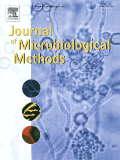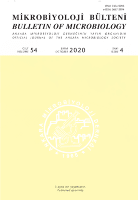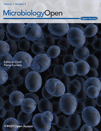
BMC MICROBIOLOGY
Scope & Guideline
Fostering collaboration in the ever-evolving field of microbiology.
Introduction
Aims and Scopes
- Microbial Ecology and Diversity:
The journal publishes studies on the diversity, distribution, and ecological roles of microorganisms in various environments, including soil, water, and human-associated microbiomes. - Clinical Microbiology and Infectious Diseases:
Research focused on the characterization, resistance mechanisms, and epidemiology of pathogenic microorganisms, particularly those relevant to human health, is a significant area of focus. - Antimicrobial Resistance:
Papers addressing the mechanisms, prevalence, and implications of antimicrobial resistance in various bacterial species, especially those affecting human health, are commonly featured. - Biotechnological Applications:
The journal highlights research on the use of microorganisms in biotechnological applications, including bioremediation, production of bioactive compounds, and probiotics. - Molecular Microbiology and Genomics:
Studies employing molecular techniques, including genomics and transcriptomics, to uncover the genetic basis of microbial behavior, resistance, and pathogenicity are integral to the journal's content. - Microbe-Host Interactions:
Research examining the interactions between microbes and their hosts, including studies on the gut microbiome and its effects on health and disease, is a prominent theme. - Emerging Pathogens and Zoonotic Diseases:
The journal also addresses the emergence of new pathogens, including zoonotic infections, and their implications for public health.
Trending and Emerging
- Microbiome Research:
There is a growing emphasis on the role of microbiomes in health and disease, particularly gut microbiota's impact on metabolic disorders, immunity, and chronic diseases. - Antimicrobial Resistance Mechanisms:
Research exploring the mechanisms behind antimicrobial resistance, including genetic determinants and their transmission, has gained significant attention, highlighting the urgent need to tackle this global health crisis. - Phage Therapy and Alternatives to Antibiotics:
The exploration of bacteriophages and other alternatives to traditional antibiotics for treating resistant infections is a burgeoning area of research, reflecting the need for innovative solutions to combat resistance. - Microbial Bioprospecting:
Studies focusing on the discovery and characterization of novel microbial species with potential biotechnological applications, including biocontrol agents and probiotics, are increasingly prominent. - Environmental Microbiology and Bioremediation:
Research aimed at understanding microbial roles in environmental processes and their potential for bioremediation of pollutants is an emerging focus, driven by global environmental challenges. - Host-Microbe Interactions:
There is a notable trend towards understanding the complexities of host-microbe interactions, especially in the context of diseases like obesity, diabetes, and infections. - Metagenomics and Multi-Omics Approaches:
The use of metagenomic and multi-omics methodologies to explore microbial communities and their functions in various environments is a rapidly growing area, offering new insights into microbial ecology.
Declining or Waning
- Traditional Microbial Taxonomy:
Research focused solely on traditional taxonomic classifications without integrating molecular techniques has decreased, as the field has moved towards more comprehensive genomic and metagenomic approaches. - Basic Laboratory Techniques:
Papers solely detailing basic laboratory methods without novel applications or insights have waned, as the focus has shifted to studies with significant implications for understanding microbial behavior and interactions. - Single-Species Studies:
Research centered on single-species studies without considering the broader ecological context or interactions with other microorganisms has become less common, reflecting a trend towards more integrative approaches. - Non-Pathogenic Microbial Studies:
While still relevant, studies focusing exclusively on non-pathogenic microorganisms without clear applications or implications for health or industry have seen reduced publication frequency.
Similar Journals

JOURNAL OF BASIC MICROBIOLOGY
Unveiling the Secrets of Microbial LifeJOURNAL OF BASIC MICROBIOLOGY is a premier publication in the field of microbiology, published by WILEY since 1985. With a significant presence in Germany, this journal encompasses a wide spectrum of research topics, focusing on applied microbiology and biotechnology as well as diverse areas within medicine. Holding a commendable Q2 ranking in both its categories for 2023, it plays a crucial role in disseminating innovative findings and methodologies to the community. Researchers will find it to be an essential platform for sharing high-quality work, where it currently stands at rank #47 in the applied microbiology and biotechnology category, representing the 63rd percentile among international journals. The JOURNAL OF BASIC MICROBIOLOGY caters to a growing audience of professionals and students, offering insights essential for advancement in microbiological research and its applications. While it does not currently offer an Open Access option, it remains an influential outlet for academic excellence, continuously contributing to the development of the field through its rigorous peer-reviewed articles.

Jundishapur Journal of Microbiology
Advancing microbial knowledge for a healthier tomorrow.Welcome to the Jundishapur Journal of Microbiology, a peer-reviewed publication dedicated to advancing the field of microbiology. Published by BRIEFLAND, this journal focuses on key areas such as infectious diseases and medical microbiology, offering a platform for researchers to share their findings from 2009 to 2024. Despite its current positioning in Quartile 4 across various categories in 2023, the journal provides a valuable resource for budding scientists and established professionals alike, contributing to the growing body of knowledge in these critical areas. While it is not an open-access journal, the Jundishapur Journal prioritizes the dissemination of research in the Netherlands, facilitating a deeper understanding of microbial science and its implications for public health. Join a community of innovators committed to exploring both emerging and established themes in microbiology.

JOURNAL OF MICROBIOLOGICAL METHODS
Fostering excellence in microbiological methodologies.JOURNAL OF MICROBIOLOGICAL METHODS, published by Elsevier, is a pivotal platform in the realm of microbiology, covering essential methodologies and innovations from both medical and molecular perspectives. With an ISSN of 0167-7012 and an E-ISSN of 1872-8359, this journal has been a significant contributor to the field since its inception in 1983, with a continued commitment to advancing research through 2024 and beyond. Although classified in the lower quartile (Q3) for both microbiology and molecular biology disciplines, it ranks at #74 in medical microbiology and exhibits a respectable position amidst its peers, marking it as a valuable resource for scholars and practitioners. Researchers, professionals, and students alike will find a wealth of insights and practical methodologies that are vital for contemporary microbiological studies. The journal's emphasis on rigorous peer reviews ensures that the content is both high-quality and relevant, catering to a diverse audience keen on the latest advancements in microbiological practices.

MIKROBIYOLOJI BULTENI
Connecting Researchers in Microbiology and Infectious DiseasesMIKROBIYOLOJI BULTENI, with ISSN 0374-9096, is a prestigious academic journal published by the ANKARA MICROBIOLOGY SOC, located in Ankara, Turkey. Established in 1973, this journal has been a vital conduit for disseminating research in the fields of Immunology, Microbiology, and Infectious Diseases, garnering a reputation as a significant contributor to the scientific community. The journal is currently ranked in the Q3 category within Immunology and Microbiology (miscellaneous), and Infectious Diseases, indicating its impactful presence amidst contemporary research. With access options that may be restricted, MIKROBIYOLOJI BULTENI actively welcomes submissions that advance the understanding of critical microbiological principles and practices, thereby supporting both national and international research efforts. Researchers, professionals, and students are encouraged to explore the latest findings shared in this journal, as it continually shapes the landscape of microbiology and infectious disease studies through its comprehensive and rigorous peer-reviewed publications.

LETTERS IN APPLIED MICROBIOLOGY
Innovating Insights in Applied MicrobiologyLETTERS IN APPLIED MICROBIOLOGY, published by OXFORD UNIVERSITY PRESS, is a prominent journal in the field of applied microbiology, serving as an essential platform for researchers and professionals to disseminate innovative findings. With an ISSN of 0266-8254 and an E-ISSN of 1472-765X, this peer-reviewed journal has been contributing to the scientific community since 1985 and continues to engage with cutting-edge research through 2024. With its current Scopus ranking placing it in the 45th percentile of its category, specifically at rank #70 out of 127 in the Applied Microbiology and Biotechnology field, it underscores its significance in advancing knowledge and applications pertinent to microbial science. Although it is not open access, LETTERS IN APPLIED MICROBIOLOGY offers comprehensive insights aimed at enhancing the understanding of microbiological phenomena in practical scenarios, making it a valuable resource for both seasoned experts and emerging scholars.

Current Research in Microbial Sciences
Championing the Latest Breakthroughs in MicrobiologyCurrent Research in Microbial Sciences is a distinguished peer-reviewed journal published by Elsevier, focusing on the dynamic and rapidly advancing fields of microbiology and infectious diseases. With an ISSN of 2666-5174, this journal has established itself as an essential resource for researchers, professionals, and students alike, offering the latest findings and insights from 2020 to 2024. The journal holds a significant position in the academic landscape, achieving a Q2 ranking across multiple categories, including Immunology and Microbiology, Infectious Diseases, and Medical Microbiology, demonstrating its impact in these critical areas of study. With impressive Scopus rankings—such as being placed in the 94th percentile for Immunology and Microbiology—current research is well-supported by a thriving scientific community. Although the journal is not open access, it serves as a vital platform for disseminating high-quality research and fostering collaboration within the microbial sciences. Engaging with this journal enables professionals and researchers to stay abreast of innovations and contribute to the collective body of knowledge that shapes our understanding of microbial interactions and infectious diseases.

MicrobiologyOpen
Elevating microbiological discourse through shared knowledge.MicrobiologyOpen is a prestigious, open access journal published by WILEY, dedicated to advancing the field of microbiology. Since its inception in 2012, this journal has firmly established itself as a significant platform for researchers, professionals, and students alike, facilitating the dissemination of high-quality research findings across a wide range of microbiological disciplines. With an impressive impact factor and a ranking in the 76th percentile of Scopus for immunology and microbiology, MicrobiologyOpen offers a robust forum for innovative studies, reviews, and compelling insights that push the boundaries of scientific understanding. The journal's commitment to open access ensures that groundbreaking research is freely available to the global community, fostering collaboration and knowledge-sharing. As it continues to evolve until 2024, MicrobiologyOpen remains pivotal for anyone looking to stay at the forefront of microbiological research.

MICROBIOLOGY
Exploring Innovations in Applied MicrobiologyMICROBIOLOGY (ISSN: 0026-2617, E-ISSN: 1608-3237), published by MAIK NAUKA/INTERPERIODICA/SPRINGER, is a pivotal journal in the field of microbiological research, operating from the vibrant hub of New York, United States. With a focus on the intricate relationships and functionalities of microorganisms, MICROBIOLOGY serves as an essential resource for professionals and researchers dedicated to advancing the knowledge of applied microbiology and biotechnology. As of 2023, it holds a competitive Q3 and Q4 category ranking in Applied Microbiology and Biotechnology and Microbiology, respectively, reflecting its commitment to high-quality and impactful research. Although currently not open access, the journal extends comprehensive insights into critical topics that span environmental microbiology, clinical applications, and biotechnology advancements, making it a vital platform for disseminating innovative findings in this ever-evolving discipline. Researchers and students alike will find MICROBIOLOGY to be an invaluable addition to their academic and professional repertoire.

INDIAN JOURNAL OF MICROBIOLOGY
Pioneering Research at the Microbial FrontierINDIAN JOURNAL OF MICROBIOLOGY, published by Springer, serves as a vital platform for the dissemination of cutting-edge research in the field of microbiology. With an ISSN of 0046-8991 and an E-ISSN of 0973-7715, this esteemed journal invites contributions that span various disciplines within microbiology, encompassing both fundamental studies and applied research that can impact health, environment, and industry. Recognized in the Q3 category in Microbiology for 2023, and ranking #80 out of 182 in Scopus’ Microbiology category, it reflects its commitment to quality and significance in the academic community. Authors and researchers benefit from the journal's comprehensive review process, which enhances the visibility and reach of their work. While no open access options are currently offered, the INDIAN JOURNAL OF MICROBIOLOGY remains a premier choice for those aiming to contribute to the ongoing dialogue in microbiological studies, ensuring that knowledge continues to evolve and thrive.

WORLD JOURNAL OF MICROBIOLOGY & BIOTECHNOLOGY
Catalyzing Innovation in Microbial Processes and TechnologiesWORLD JOURNAL OF MICROBIOLOGY & BIOTECHNOLOGY, published by Springer, serves as a pivotal forum for advancing the fields of microbiology and biotechnology since its inception in 1990. Located in the Netherlands, this esteemed journal has secured a prominent position in the academic landscape, recognized for its strong impact factor and prestigious Q2 category rankings across disciplines such as Applied Microbiology, Biotechnology, and Physiological Sciences. Researchers and professionals utilize this journal to disseminate innovative findings and explore emerging technologies that are transforming the scientific landscape. With a robust submission rate and high visibility among the academic community, the journal fosters interdisciplinary collaboration, encouraging discussions that bridge gaps between theory and practical applications. As it converges into 2024, the WORLD JOURNAL OF MICROBIOLOGY & BIOTECHNOLOGY continues to be a vital resource for scholars aiming to enhance our understanding of microbial processes and biotechnological advances.